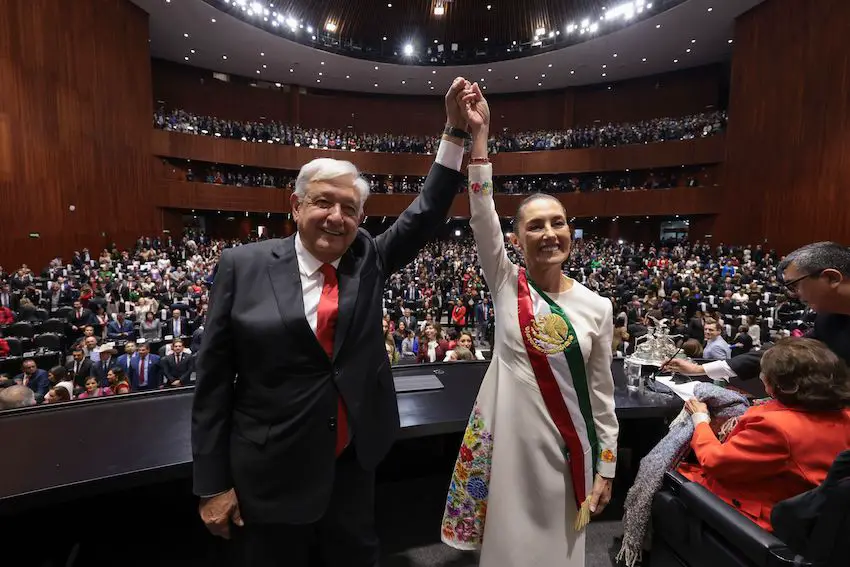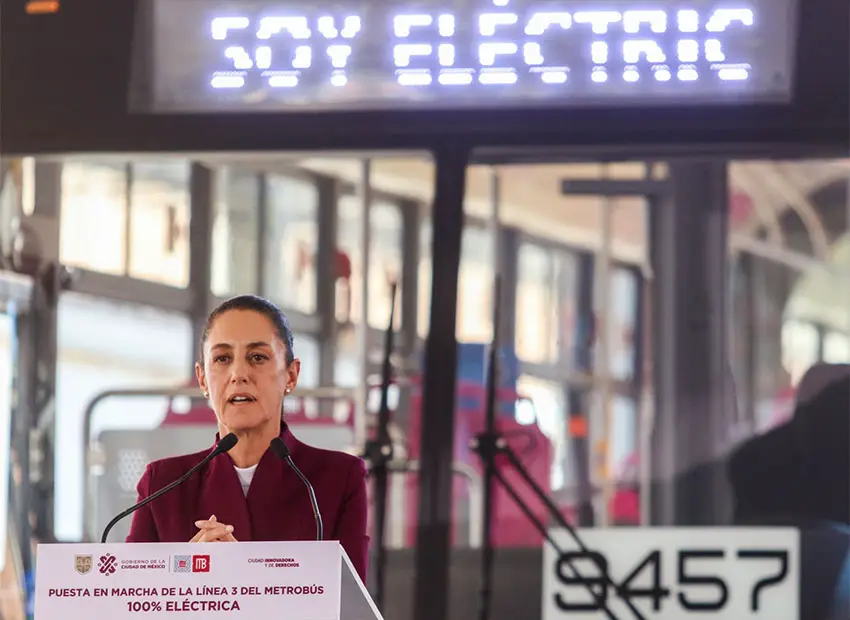Mexico City municipal solar farm to power the capital’s EV buses

Mexico City’s municipal public market will soon use its solar panels to power city buses in the nation’s capital, according to Bloomberg News.
Solar panels affixed to Mexico City’s Central de Abasto — one of the largest markets of its kind in the world — will be used to power the capital’s electric buses, helping President Claudia Sheinbaum “achieve her goal of boosting clean energy in the fossil-fuel dependent country,” Bloomberg reported Thursday.

In 2022, Sheinbaum, as Mexico City’s mayor, oversaw the installation of 32,110 photovoltaic modules at the sprawling 327-hectare (810-acre) market in the eastern borough of Iztapalapa. The initial cost was estimated at 661.4 million pesos (US $34.3 million).
The system has already reduced the market’s electricity bills by nearly 3 million pesos (US $155,323). This second phase — set to begin in January — will distribute power to the city’s transit system via a 16.6 megawatt photovoltaic center.
The project is expected to save the city about 18 million pesos (US $934,000) per year, according to the newspaper Global Energy.
The panels have the capacity to generate 26.5 gigawatt hours of electricity annually and will help reduce the generation of CO2 in the capital by roughly 13,550 tonnes each year.
Sheinbaum is determined to make a dramatic departure from the fossil-fuel reliance promoted by her predecessor, Andrés Manuel López Obrador.
The new president — Sheinbaum was inaugurated on Oct. 1 — promised during her presidential campaign to invest US $13.6 billion in new power generation projects. She reiterated the pledge during her first public speech on Tuesday, hours after being sworn in as the country’s first female president.


“We are going to boost renewable energies. The goal is that by 2030, they will have a 45% share (of total electricity production),” she said, according to The Associated Press.
The task won’t be easy. Bloomberg reported that only 31% of the energy produced in Mexico is derived from clean sources, and the newspaper El Sol de México reported last month that a mere 2.3% of the capital’s public transport system is electric or hybrid, a sharp contrast in comparison to regional peers Brazil and Colombia, which produce more than 80% and 70% of their power, respectively, from green sources, Bloomberg reported.
López Obrador, a feisty defender of fossil fuels, spent more than US $20 billion on a new oil refinery and canceled auctions that would have allowed developers to build solar and wind farms in Mexico.
Thursday’s revelation suggests Sheinbaum aims to resume an energy transition that López Obrador had in many ways halted. Details will be forthcoming, the AP reported, as the president is set to unveil an “ambitious energy transition program” aimed at reducing greenhouse gasses.
However, Sheinbaum also announced she plans to strengthen the Federal Electricity Commission—whose antiquated plants primarily burn fossil fuels—and state-owned oil company Pemex.
With reports from Bloomberg News, The Associated Press, Global Energy and El Sol de México
Source: Mexico News Daily

